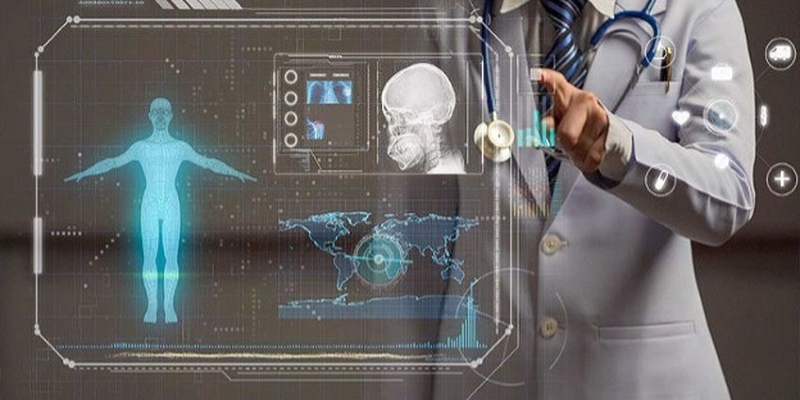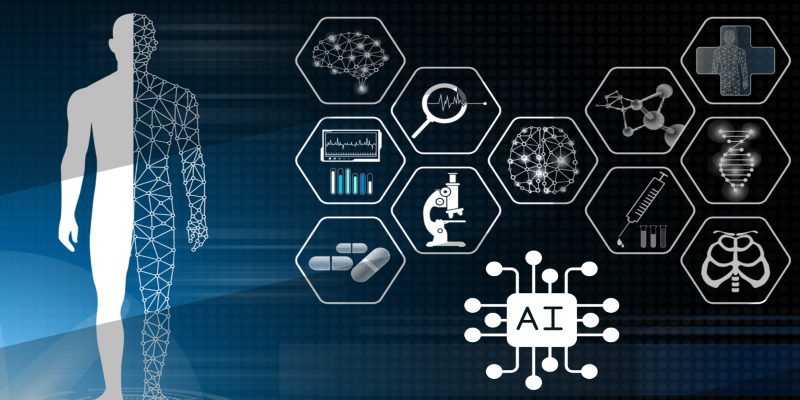How Is AI Changing Personalized Healthcare Treatments?
Artificial Intelligence (AI) is rapidly transforming various industries, and healthcare is no exception. One of the most significant areas where AI is making a substantial impact is personalized healthcare. Personalized healthcare, also known as precision medicine, tailors treatments and healthcare strategies based on individual differences, such as genetics, environment, and lifestyle. AI plays a crucial role in refining this personalized approach, making it more accurate and accessible.
Understanding Personalized Healthcare
Traditionally, healthcare followed a one-size-fits-all approach. Treatments and medications were prescribed based on average responses observed in large populations. However, human bodies are complex, and what works for one person may not work for another. This gap led to the emergence of personalized healthcare, which focuses on individual traits to predict, prevent, and treat diseases more effectively. AI is enhancing this model by analyzing massive amounts of data, identifying patterns, and recommending treatments that are specifically suited to each patient.
AIs Role in Analyzing Patient Data

The foundation of personalized healthcare is dataspecifically, patient data. From genetic information to medical history, lifestyle factors, and even social determinants, there is a mountain of data to consider. However, it is nearly impossible for human professionals to sift through this data efficiently. Heres where AI steps in. Machine learning algorithms can process enormous datasets much faster than humans. More importantly, AI doesnt just process data; it can identify correlations and patterns that might go unnoticed by human eyes.
For example, AI can analyze a patients genetic makeup and compare it against millions of other cases to suggest treatments that have been effective for people with similar profiles. This level of detail leads to more accurate diagnoses and more effective treatment plans, reducing trial-and-error approaches.
Predictive Analytics for Better Outcomes
One of the strongest advantages AI brings to personalized healthcare is predictive analytics. By studying historical data, AI models can predict the likelihood of a person developing certain conditions. For example, if a persons genetic profile indicates a high risk for a specific type of cancer, AI can highlight this early on, allowing doctors to take preventive measures long before symptoms even begin to show.
This predictive capability doesnt just apply to long-term risks; it also helps in real-time decisions. For instance, during surgeries or critical care, AI systems can monitor vital signs and other indicators to predict complications before they arise, enabling doctors to act faster and more accurately.
Personalized Treatment Plans
AIs ability to tailor treatment plans is one of its most impactful contributions to personalized healthcare. Medications, dosages, and therapeutic approaches can all be customized to a patients unique biological profile. This is especially important in areas like oncology, where treatments like chemotherapy have varying effectiveness depending on the patient. AI can match cancer patients with specific therapies that have proven successful in others with similar genetic markers.
In addition, AI can refine treatment over time. By continuously analyzing the patients response, AI-driven systems can adjust dosages or suggest alternative treatments more quickly than traditional approaches would allow. This adaptability improves patient outcomes and minimizes side effects.
AI in Drug Discovery and Development

Drug discovery is a lengthy and costly process, often taking years to bring a new drug to market. AI is speeding up this process by identifying potential drug candidates faster. By analyzing biological data, AI models can predict how different compounds will interact with human biology, narrowing down potential treatments more efficiently.
In personalized healthcare, this acceleration is even more significant. AI doesnt just identify drugs; it helps in creating treatments tailored to the specific needs of a smaller group or even a single patient. For rare diseases or conditions that affect only a tiny percentage of the population, personalized drugs can be developed with the help of AI. This was nearly impossible before due to the high costs and time involved in traditional drug development.
Virtual Health Assistants and Personalized Care
Another area where AI is making strides is in virtual health assistants and apps that deliver personalized healthcare advice. These tools are increasingly common, and they can provide tailored recommendations based on the users health data. For example, someone managing diabetes might receive daily tips on what to eat, reminders for medication, or alerts when blood sugar levels are likely to spike based on past data trends.
These AI-powered health assistants also play a role in mental health, offering tailored support through regular check-ins and monitoring changes in mood or behavior patterns. While they dont replace healthcare providers, they offer an added layer of personalized care that can be accessed at any time.
Ethical and Privacy Concerns

While AI-driven personalized healthcare offers numerous benefits, its not without its challenges. Data privacy is a significant concern. Personalized healthcare relies on vast amounts of personal data, including genetic information, which is highly sensitive. Ensuring this data is protected from breaches is crucial.
There are also ethical questions around AIs role in decision-making. For instance, should an AI systems recommendation overrule a doctors judgment? And how do we ensure that AI systems are free from biases that could negatively impact certain groups of people? These are ongoing debates in the healthcare community as AI becomes more integrated into patient care.
Overcoming the Challenges
To fully realize the potential of AI in personalized healthcare, certain barriers must be addressed. Data standardization is one. Different healthcare providers use varying formats and systems for patient data, making it difficult for AI systems to analyze information consistently across platforms. Interoperability solutions are needed so that AI can access and process data seamlessly.
Training healthcare providers to effectively use AI tools is another challenge. Even the most sophisticated AI systems are only as effective as the professionals who use them. Ensuring doctors and other healthcare staff are comfortable integrating AI insights into their practice is essential.
Finally, building trust with patients is critical. People may feel uneasy about AI's role in their healthcare, especially when it comes to data sharing or automated decision-making. Transparency in how AI systems work, along with strict regulations around data use, can help alleviate these concerns.
Conclusion
AI is transforming personalized healthcare by making it more precise, proactive, and efficient. From analyzing data and predicting health risks to tailoring treatments and supporting drug discovery, AIs contributions are paving the way for a healthcare system that is not only smarter but also more responsive to individual needs. As these technologies advance, personalized treatments are likely to become more widespread, ultimately leading to better outcomes for patients.











